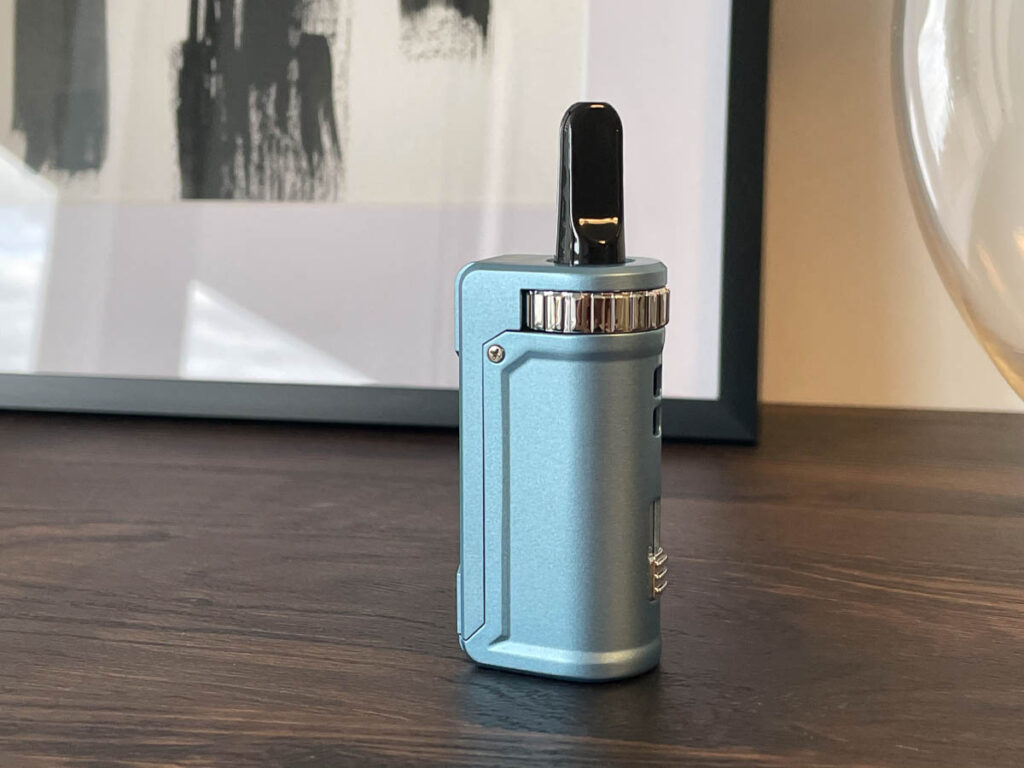
The primary objective of earning an educational degree is to acquire knowledge and develop relevant skills. Nonetheless, in many degree programs, particularly challenging ones like a Doctor of Nursing Practice (DNP) degree, a student’s ability to master learning can also become a crucial determinant of their success.
DNP students often find themselves juggling rigorous academic study and the demands of clinical practice in their quest to become expert clinicians, leaders, and advocates in the nursing field. As such, the ability to learn effectively becomes a foundational element that makes this demanding yet rewarding pathway a lot more manageable and fulfilling.
This article explores a myriad of effective methods that empower DNP students to master the art of learning. It is ideal for those seeking to improve study habits, optimize time management, or enhance their ability to retain and apply knowledge in nursing school. The effective learning methods highlighted here will serve as crucial tools throughout the educational journey.
What is a DNP Program?
A DNP represents the highest level of education available for practice-based training in nursing. This program is designed for professionals who seek top academic and professional achievement.
With a DNP program, nursing professionals develop the necessary competency to serve in advanced clinical, executive, educational, and research positions within the healthcare industry. In line with propelling modern best practices in the field, a DNP program also focuses on translating evidence-based research into clinical practice, improving healthcare outcomes, and safely blurring the line between theory and practice.
A DNP program provides a practical alternative to a traditional research-focused PhD in nursing, focusing on the skills necessary for advanced practice, leadership, and advocacy. As such, the curriculum of the DNP program typically involves topics in evidence-based practice, leadership, healthcare policies, and health system management.
What Does a DNP Program Entail?
A DNP typically features similar elements to other graduate degrees, like a Master of Science in Nursing (MSN). However, the main difference between DNP and MSN is the level of education and scope of practice. At the University of Indianapolis, for example, both DNP and MSN courses involve clinical placements and online coursework, offering flexibility for students. It is the curriculum and skills involved that differ the most.
DNP programs typically require students to have the following components:
- A bachelor’s or master’s degree in nursing from an accredited institution.
- A minimum of 1,000 hours of supervised clinical practice in a specialty area.
- A core curriculum that covers topics such as evidence-based practice, health policy, informatics, and leadership.
- A capstone project that demonstrates the application of knowledge and skills to a real-world practice problem.
- Final oral defense of the capstone project.
A DNP program typically takes two to six years to complete, depending on the entry-level, specialty, and study pace. Upon completion, graduates can take on several advanced practice and leadership roles, from nurse practitioners to clinical nurse specialists, nurse educators, nurse administrators, and nurse researchers.
Graduates of a DNP program must complete all required coursework and program requirements with a minimum GPA of around 3.0 or higher, depending on the program. A national certification exam may also be required in some cases. While these requirements vary slightly, it does highlight the importance of developing effective learning methods to successfully manage every aspect of a DNP program.
Importance of Effective Learning for DNP Students
DNP programs are becoming more prevalent in the US as more nurses seek to advance their clinical skills and leadership abilities. According to a report by the American Association of Colleges of Nursing (AACN), there are currently 426 DNP programs enrolling students at schools of nursing nationwide.
The number of students enrolled in DNP programs has also increased steadily, with 41,021 DNP students in 2022, compared to about 29,093 in 2018. However, this high number of students does not exactly reflect the number of professionals who break into the field as DNP graduates.
For a DNP student, it is essential to embrace and apply effective learning methods throughout the educational journey. In the ever-changing landscape of healthcare, new technologies, treatment modalities, and evidence-based practices emerge regularly. Staying current and adapting to these changes is a mandate for healthcare professionals, and DNP students are no exception. Effective learning methods facilitate DNP students’ understanding of these developments while also empowering them to evaluate and integrate them into clinical practice.
Moreso, the DNP program prepares students to become healthcare leaders tasked with making crucial decisions, driving change, and improving healthcare outcomes. Effective learning also serves as a foundation for building the skills required of leaders. Embracing effective learning is a professional responsibility for DNP students. Here are some prevalent methods for mastering the art of learning.
Active Engagement
Active engagement is one of the most important study habits to implement as a DNP student. This process demands students engage in their learning from an active perspective. Active learning requires students to create solutions to intricate problems, make crucial decisions, understand complex terminologies, and explain these concepts in their own words.
When DNP students actively participate in the learning process, they are more likely to retain information, develop critical thinking skills, and cultivate a love for learning. All these are crucial for success as a healthcare leader. Active engagement is a student-centered approach that places a significant portion of the learning responsibility upon the student.
Most nursing schools already facilitate active engagement by employing effective classroom engagement strategies, like active learning techniques and a culture of collaboration. As such, students must take advantage of these dynamic learning opportunities to develop the necessary skills and succeed.
Time Management
In short, time management is the ability to use time effectively and productively. This ability is particularly helpful for DNP students who must juggle several complex elements of the program with other personal and professional commitments. By implementing time management strategies, students can create a practical plan that controls the time spent on specific tasks.
DNP students can implement several strategies to manage their time effectively. The most prevalent step is creating a schedule. Schedules help to develop a routine that highlights each task and assigns a specific timeline for them. Students who develop a schedule can make decisions easier and develop healthy habits to better manage their time and energy.
Furthermore, time management also helps to prioritize and create boundaries around work and personal time. Prioritization is crucial to efficiency, ensuring students focus on more important tasks and complete them quickly and efficiently. Similarly, boundaries help to define the time for each activity. There are several other time management strategies to adopt, all of which ensure students are well-prepared, organized, and focused to succeed in a DNP program.
Learning Styles
Each student is unique and possesses their own set of characteristics, strengths, weaknesses, individual needs, and, most importantly, learning styles. A learning style is the way students learn, emphasizing an individual’s preferred way to absorb, process, comprehend, and retain information.
Typically, students fall under four major categories based on Neil Fleming’s VARK model: visual learners, auditory learners, reading/writing preference, and kinesthetic learners. First, visual learners prefer the use of images and graphic organizers to access and understand new information. On the other hand, auditory learners best understand new content through listening and speaking in situations such as lectures and group discussions.
Kinesthetic learners are more hands-on learners. Regarding DNP programs, this category recognizes the importance of practical assignments and how project-based learning can benefit DNP students. Nursing schools implement every category of learning in one way or another in their curriculum. Hence, DNP students must identify their learning style and focus on program elements that foster that style.
Utilizing Technology
Technology has become a prevalent feature in schools today, so much so that digital devices have almost completely replaced pen and paper in many classrooms. In truth, public opinion on the use of technology in the classroom remains divided; nonetheless, several studies have found technology helpful in creating positive changes in teaching and learning, providing opportunities for collaboration, engagement, and support.
Instructional technology is the theory and practice of using technology for education. This process takes on different forms, from electronic whiteboards to online courses and even simulations. Most schools implement instructional technology to provide better access to information, collaboration opportunities, and a platform that meets the diverse needs of students.
Aside from instructional technology, students can also utilize technology to enhance their educational experience. This includes accessing e-books, educational apps, and audiobooks, joining online communities, implementing adaptive learning systems and productivity tools. They can also effectively use search engines and academic databases for online research.
Study Groups
Forming study groups is a very effective strategy for enhanced learning, as each member of the group shares unique insights and learns from each other. Study groups are particularly helpful for projects, presentations, and exams, all of which are key components of a DNP program.
By working together in a study group, students generally learn faster and get fresher perspectives on a topic. Study groups are also practical solutions for procrastination, with students required to be present at a specific time and be ready to contribute to the study session.
Furthermore, study groups also double up as support systems. DNP programs can get very stressful, and every student could require support at some point. Joining or forming a study group is a great way to give and Receive support from peers.
Self-Assessment
Self-assessment is an effective learning technique where students assess their own performance based on specific criteria.
According to some research, self-assessment can have positive effects on learning outcomes, from academic achievements to motivation, engagement, and self-regulation. However, this process also has some challenges. For some students, it becomes a source of inaccurate judgments, while others may experience the potential for bias and self-deception. Hence, students need to implement strong self-evaluation techniques for a non-biased assessment.
Nonetheless, when done correctly, self-assessment can help students set goals more effectively and eliminate performance review bias. Reviewing performance can also improve their student’s confidence, particularly when they are doing well, as seen in a study based on classroom learning. Students can also identify and address areas for improvement more easily than their mentors, at times.
Setting Realistic Goals
DNP programs feature different elements, from theoretical coursework to practical assignments and capstone projects. Hence, it is important for students to stay organized, motivated, and focused. This can be achieved by setting clear and achievable goals. Setting goals is a crucial step for professional and personal development, and through this process, DNP students can get direction, motivation, and a sense of purpose.
It is equally important to establish realistic and achievable goals. Students should set goals that are achievable within a specified timeframe. The timeframe will also determine the type of goals they set, whether they are long-term or short-term. Whichever the case, it is important for students to employ helpful processes like the SMART framework to develop well-defined and realistic goals.
Self-Care
The complex and multifaceted nature of DNP programs can sometimes result in students pushing well-being to the side. To address this challenge, DNP students must implement self-care strategies to maintain a perfect balance between educational commitment and their wellness.
Some self-care strategies to manage stress include breathing and physical exercises, yoga, cognitive behavioral therapy, aromatherapy, and progressive muscle relaxation, to mention a few. It is worth noting that self-care is a personalized process, so students should identify what works best for them.
The Healthcare Leader Career Path
Ultimately, the path to becoming a healthcare leader and skilled clinician hinges upon a professional’s ability to adapt, grow, and evolve with the dynamic healthcare landscape. Effective learning is a major technique that can empower DNP students to take control of their learning journey and develop into better professionals. Whether it is optimizing study habits, managing time effectively, or embracing active participation, these tools help to make the journey as a DNP student more manageable and rewarding.







